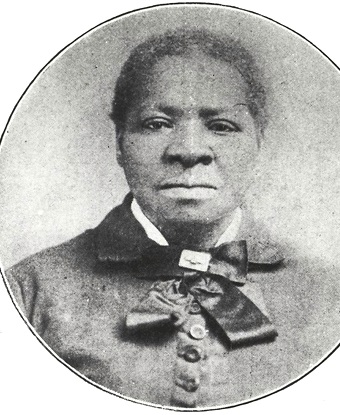In the 1856 landmark case Mason v. Smith, Bridget “Biddy” Mason sued her master for her and her family’s freedom, a full year before the infamous Dred Scott v. Sandford decision. In the Dred Scott case, the court ruled that enslaved persons did not become free when brought to free states. Before that ruling, Bridget Mason’s owner, Robert Smith, transported his slaves to Salt Lake City and then on to San Bernardino, California, to establish a new Mormon community there. At the time, California was a free state, and free Black friends of Bridget’s encouraged her to legally contest her slave status. In December 1855, afraid that his slaves would be taken from him, Smith decided to move, transporting his slaves to Texas (a slave state) in order to protect his ownership.
However, before he could transport them from California, friends of Bridget’s alerted the Los Angeles sheriff to her master’s intentions and the sheriff intercepted Smith’s wagon train, carrying a writ of habeas corpus in hand. The writ (much like an order of the court) required Bridget, her sister Hannah (who was possibly not a blood relation of Bridget’s), and their children to be presented to Los Angeles District Judge Benjamin Hayes wherein he would consider their enslaved status. Hannah, who had recently given birth, was not present at the proceedings and astonishingly Bridget herself had to remain silent during the court proceeding because a California law prevented Blacks and Native Americans from giving testimony against whites.
In Judge Hayes’s order freeing Bridget and her family, the court held that Smith “intended to remove [Bridget and the others for] his own use without the free will and consent of all or any of [them], whereby their liberty will be greatly jeopardized.” Because of Smith’s undue influence over the family (as a result of their inability to read and write or understand the laws of California or Texas, as well as the history of their relationship to him), Judge Hayes also determined that they were incapable of entering into a binding agreement with Smith. This nullified any argument that the arrangement was voluntary.
Bridget eventually moved to Los Angeles where she worked as a midwife and nurse before purchasing land where, in 1872, she established First African Methodist Episcopal (AME) Church, the oldest Black Church in the city. Bridget went on to become a well-known philanthropist to the entire community and she was instrumental in founding a traveler’s aid center and an elementary school for Black children.

